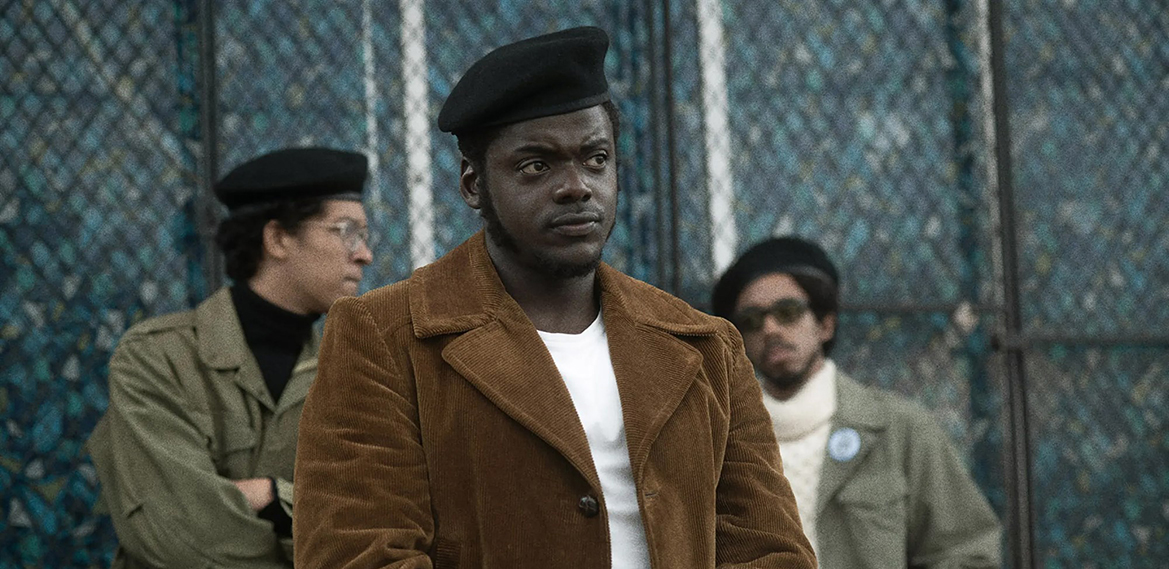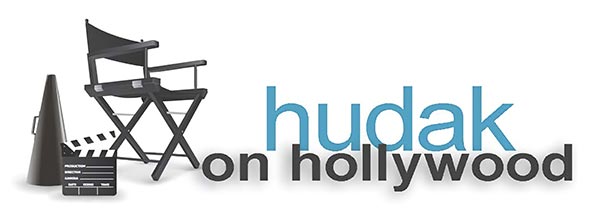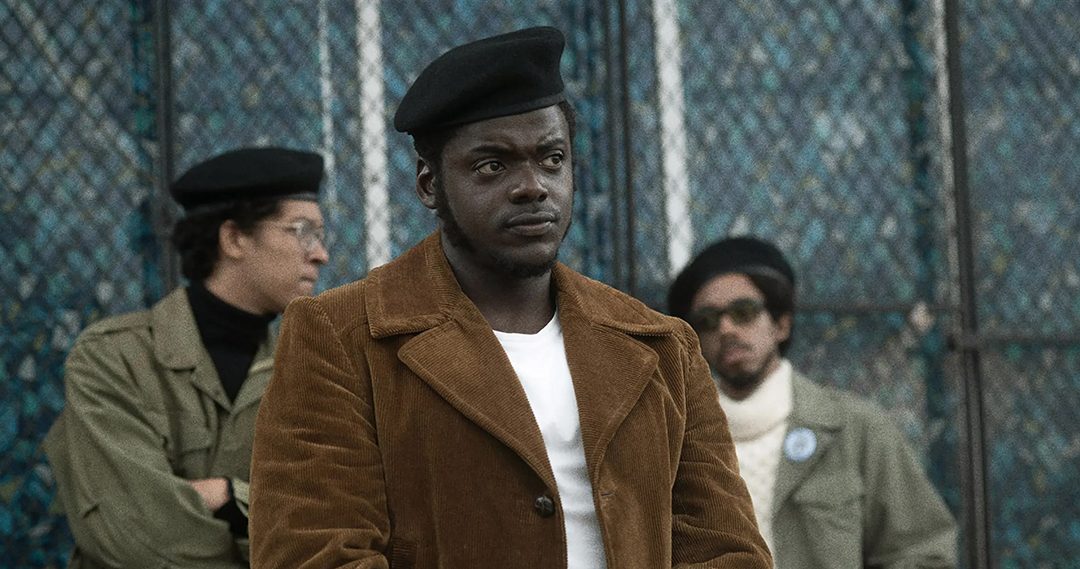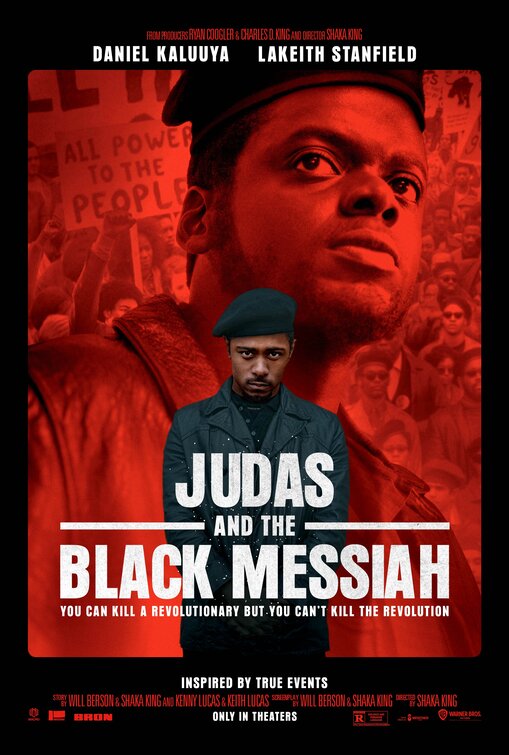“The Little Things” is also new to Blu-Ray this week.

Judas and the Black Messiah
The man is powerful, confident, eloquent, and persuasive. His language is fiery and direct—it begs no question. The man says what he means and he means what he says. He comes across as completely genuine and sincere. The man is a strong, tireless leader. He has a vision of how things could be and a plan on how to make them that way. The man is Fred Hampton, chairman of the Chicago Black Panther party in the late 1960s, and he is an absolute dynamo as a speaker and persuader.
It’s no doubt that these attributes and memorable scenes in “Judas and the Black Messiah” are what recently garnered Daniel Kaluuya his Best Supporting Actor Oscar. But Hampton isn’t all passion and tenacity, and it’s in the scenes in which Hampton is quiet and listening that Kaluuya puts a shine on the performance to go along with the one on his Oscar. For those who have ever heard the expression that half of all acting is reacting and never completely understood what it meant, pay close attention to a scene in which Hampton visits the mother (Alysia Joy Powell, proving there are no small roles with this one scene) of one of his slain members. Watch how during the conversation Kaluuya listens attentively, leans in, slightly diminishes himself, and lets Powell have her big moment. That’s good directing on the part of Shaka King as well as a generous performance by Kaluuya in a profession that is more of a competition than people realize.
If Hampton is the Messiah of the title, then Bill O’Neal (LaKeith Stanfield) is the Judas. Not that he wants to be. O’Neal is caught in a one-man car theft plan so mind-bogglingly asinine that it must be true. The upside is that it shows his courage (or foolhardiness—either one works) to FBI agent Roy Mitchell (Jesse Plemons). In keeping with a mandate set forth by FBI director J. Edgar Hoover (Martin Sheen), Mitchell wants to bring down the Black Panthers. It’s not strictly dogmatic order following either—Mitchell believes that the Black Panthers are the other side of the coin of the KKK and equally as dangerous. His method of attack against the Panthers is to pay O’Neal to infiltrate the organization and provide him with intel.
Since “Judas and the Black Messiah” is based on a true story, the situation is less cat and mouse than similar fictional undercover stories like, for example, “The Departed.” There are tense moments where O’Neal is worried about being called out, and discovery is a major concern, particularly after he hears what happened to someone who other members thought was a rat. However, he throws everyone off his scent by being the most extreme Black Panthers member he can possibly be. At one point he even suggests blowing up a building. This is a genius move on O’Neal’s part and a thrill to watch Stanfield perform. After all, how could anyone so devoted to the cause that he’s willing to kill and be killed possibly be a rat?
I am also stunned at how little race actually comes in to play in “Judas and the Black Messiah.” There’s one scene involving a white supremacist meeting that had me thinking, “Here we go…” but I finished watching the scene in awe at the deft way in which Hampton takes control and delivers a speech that makes the poor white people in the audience realize that the fight is not about race, it’s about class. Poor white people and poor black people face many of the same struggles. It’s a brilliant strategy on Hampton’s part, and one he uses to not only unite with white people, but also with the Puerto Rican community as well as with other groups in the fractured black community.
Unfortunately for Hampton, while he was very good at identifying class struggle and not seeing black, white, brown, or red, he turned his ire to another color: blue. It’s the constant antagonizing of the Chicago Police Department and calling them names like “pigs” that ultimately lead to bad things happening to Hampton and some of his associates. If only he was able to tone down the rhetoric and get past the hate, who knows what might have happened. His hatred for the cops is his blind spot, and much like in Greek tragedy, his most vulnerable weakness leads to his undoing. This is a good lesson for now as much as it was fifty years ago. Buy it.
“The Little Things,” in which two cops track down a serial killer, starring Denzel Washington, Rami Malek, Jared Leto, and Chris Bauer; and “The Virtuoso,” in which a man must track down and kill a rogue hitman to satisfy an outstanding debt, starring Anson Mount, Abbie Cornish, David Morse, and Anthony Hopkins.


